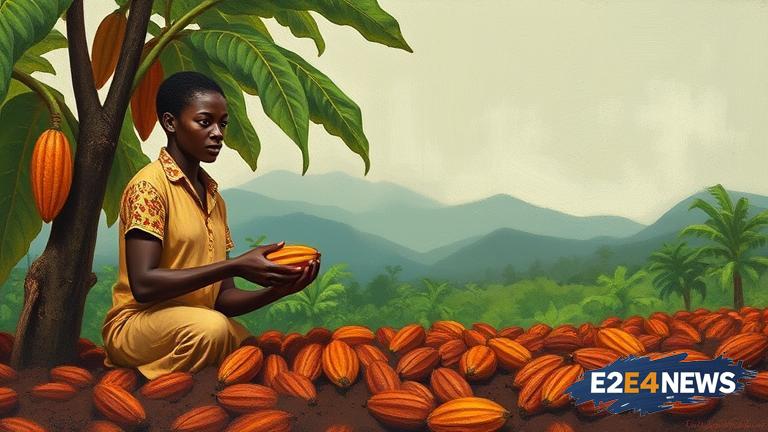The Cameroonian government has taken a significant step towards enhancing the country’s cocoa industry by distributing CFA 348M in quality bonuses to farmers. This initiative is part of the government’s efforts to improve the quality of cocoa produced in the country and increase the sector’s competitiveness in the global market. The bonuses are intended to incentivize farmers to adopt best practices and produce high-quality cocoa beans. The distribution of the bonuses is a result of the government’s collaboration with the private sector, including cocoa buyers and exporters. The move is expected to have a positive impact on the livelihoods of cocoa farmers, who are the backbone of the sector. Cameroon is one of the major cocoa-producing countries in the world, and the government is committed to supporting the sector’s growth and development. The cocoa industry is a significant contributor to the country’s economy, accounting for a substantial portion of the nation’s export earnings. However, the sector faces several challenges, including low productivity, poor quality beans, and limited access to markets. The government has implemented various measures to address these challenges, including the distribution of quality bonuses, training programs for farmers, and investments in infrastructure. The quality bonuses are based on the quality of the cocoa beans produced by farmers, with higher-quality beans attracting higher bonuses. The bonuses are paid to farmers who produce cocoa beans that meet international quality standards. The government has established a system to monitor and evaluate the quality of cocoa beans, ensuring that only high-quality beans are eligible for the bonuses. The distribution of the bonuses is also expected to encourage farmers to invest in their farms, improving productivity and efficiency. The government’s efforts to improve the cocoa sector are part of its broader strategy to diversify the economy and reduce dependence on oil exports. The cocoa sector has the potential to create jobs, stimulate economic growth, and reduce poverty. However, the sector requires significant investments in infrastructure, training, and technology to reach its full potential. The government is working with international organizations, including the World Bank and the International Cocoa Organization, to secure funding and technical assistance for the sector. The distribution of the quality bonuses is a positive step towards achieving the government’s goals for the cocoa sector. The bonuses will not only improve the livelihoods of cocoa farmers but also contribute to the growth and development of the sector as a whole. The government’s commitment to the cocoa sector is a testament to its recognition of the sector’s importance to the economy and the livelihoods of thousands of farmers. The distribution of the quality bonuses is expected to have a ripple effect, encouraging other stakeholders in the sector to invest in quality improvement initiatives. The government’s efforts to improve the cocoa sector are also expected to contribute to the country’s achievement of the Sustainable Development Goals, particularly Goal 1, which aims to eradicate poverty. The cocoa sector has the potential to play a significant role in reducing poverty and improving living standards in rural areas. The government’s initiatives, including the distribution of quality bonuses, are critical to unlocking the sector’s potential and ensuring that it contributes to the country’s economic growth and development.
